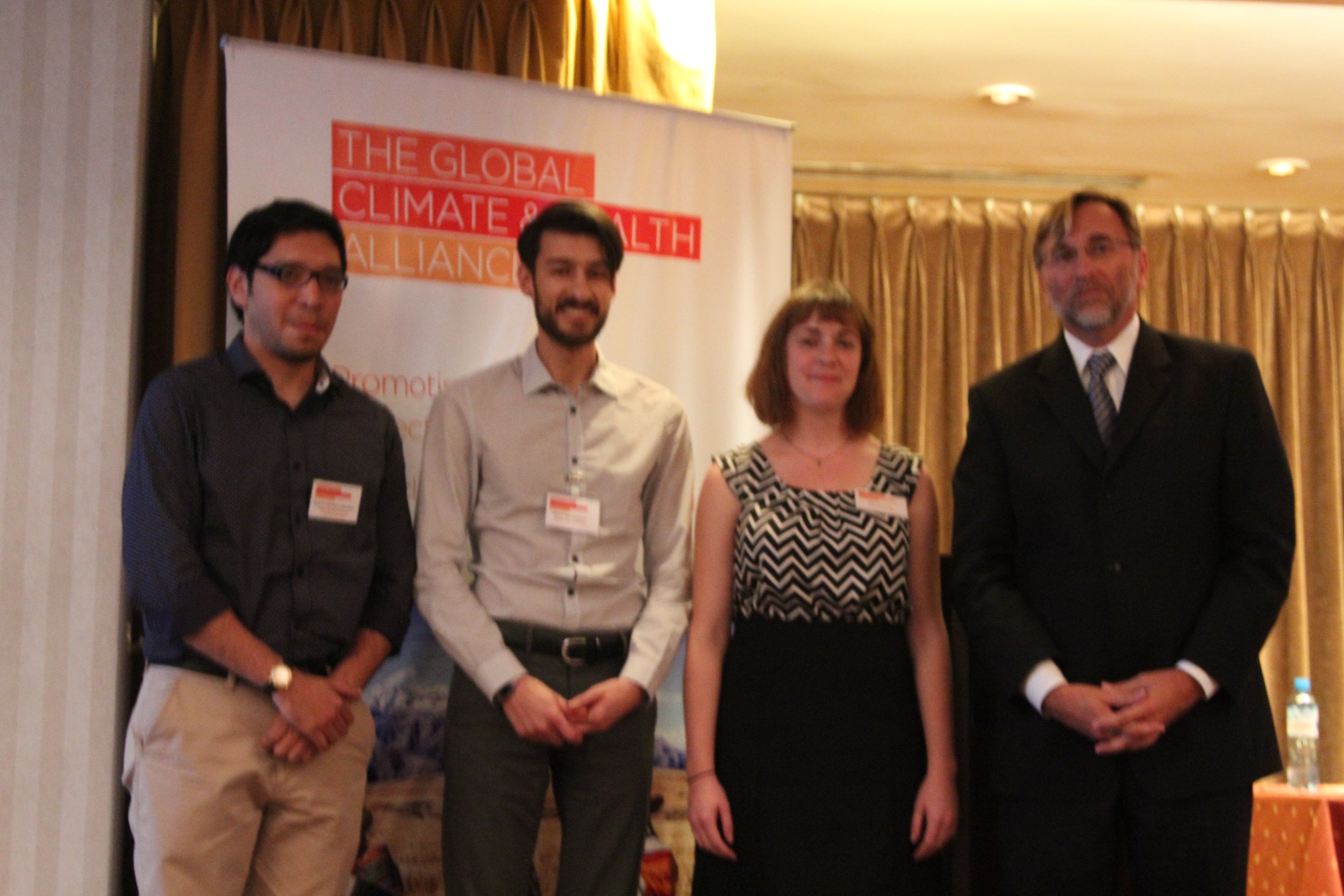Mya Sherman will be presenting her Master's thesis work at the 2014 Climate and Health Summit in Lima, Peru on December 6th 2014.
Organized in parallel with the 20th session of the UNFCCC Conference of the Parties (COP 20), the third annual Climate and Health Summit will raise awareness about climate change's negative effects on health and mitigation's potential to create a "cleaner, healthier and more equitable world". The Summit aims to ensure health considerations are included in negotiations toward a 2015 agreement on climate change. The Global Climate and Health Alliance, organizer of the Summit, hopes to galvanize the international health community in advance of the UN General Assembly (UNGA) and COP 21 in 2015. The Summit will exhibit climate change best practices that improve public health. The event will bring together government ministers from health, development, energy and environment departments, other policy makers, technical experts, academics, non-governmental organizations (NGOs) and civil society, medical and health professionals, local health and environment authorities, UN staff and youth.
Date:6 December 2014 Venue:Swissotel, Miraflores, Av. Santo Toribio 173-Via Central, Centro Embresarial Real Via Principal 150, Lima 27 Location:Lima, Peru





